Innovations in Developmental Education Redesign
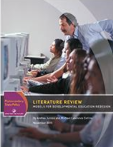
This case study series documents the various approaches that eight Florida colleges have taken in responding to SB 1720. It highlights the decisions and processes colleges consider when implementing developmental education reform at scale, and captures lessons learned throughout the implementation process. The series is based on interviews and site visits Jobs for the Future… Read More ›
A Call to Action to Improve Math Placement Policies and Processes
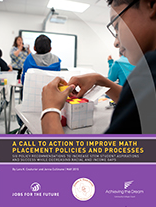
This report, a call to action is based on a simple but important premise: The nation cannot allow college placement policies, processes, and instruments to undermine promising efforts to increase student success in mathematics and increase attainment of STEM credentials. Source Organization: Jobs for the Future Visit the Resource
Heavy Lifting: The State Capacities Required for Scaled Developmental Education Reform

This brief draws on the experience of four states in Jobs for the Future’s Postsecondary State Policy Network—Connecticut, Florida, North Carolina, and Virginia—that are among a very small number of states engaged in statewide developmental education reform. Developmental education is increasingly a target of reform for state policymakers. Rigorous research has exposed developmental education as a… Read More ›
Success in Real-Time: Using Real-Time Labor Market Information to Build Better Middle-Skill STEM Pathways

This report encourages states to support their colleges as they use high-quality, real-time labor market information to align the creation of middle-skill STEM pathways with robust career opportunities, and provides recommendations and examples for how states can do so. Source Organization: Jobs for the Future Visit the Resource
Policy Meets Pathways: A State Policy Agenda for Transformational Change
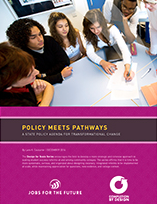
This report, released by Jobs for the Future, says that a decade of interventions and improvements have fallen short because states and campuses have not taken large enough steps to address their biggest challenge—helping the 12.8 million students enrolled in community colleges earn postsecondary degrees and credentials to find good jobs. The report argues that campuses and… Read More ›
Keeping Pace with K-12 Digital Learning: An Annual Review of Policy and Practice (2015)

This report documents the state of digital learning across the country each year. The 2015 report follows the shift in the larger landscape towards more school control of online learning with more emphasis on the users and developers of digital learning and more school program examples throughout. First the authors provide a broad report on… Read More ›
Whitmire: The Secret to Building the Next Gen High School? Forget All Your Middle School Successes

This article is about what happened when Blackstone Valley Prep High School received a grant from Next Generation Learning Challenges and adopted Summit Basecamp software, a newly released learning tool. Source Organization: The Seventy Four Visit the Resource
Why Americans Should Not be Coming up With Their Own Solutions to Teacher Training Issues

This article explores why it may be that several other countries are doing a better job than the U.S. in developing teachers. Professional development of American teachers costs up to $18 billion a year with at least half of that spent on workshops for teachers. But no matter how much we spend, it doesn’t seem to… Read More ›
What You Need to Know When Developing Micro-Credentials
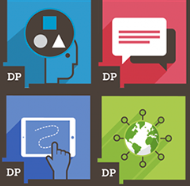
This article defines micro-credentials and what the author learned from implementing them. Educators didn’t necessarily know what to expect as they began the journey toward micro-credentials (sometimes called badges), but they were eager to explore the possibility of changing professional learning from seat-time to competency-base to encourage changes in practice. In an effort to help teachers apply… Read More ›
Students Help Design Measures of Social-Emotional Skills

This article explores how Washoe County District, a district in Reno, Nevada, put social-emotional learning in the forefront of their education system. A growing body of research connects skills like responsible decision making, empathy, and responding to emotions with both greater engagement in the classroom and improved academic outcomes. Washoe County District, launched a social-emotional learning… Read More ›
The Fantastic New Ways to Teach Math that Most Schools Aren’t Even Using
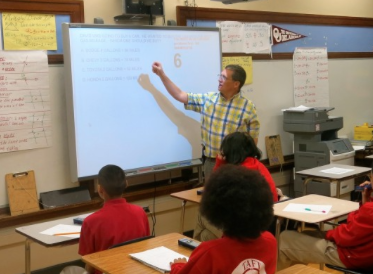
This article, written by Corey Drake, Associate Professor and Director of Teacher Preparation at Michigan State University’s College of Education discusses a short list of ideas and teaching practices that will support how students learn math, and why it is important for teachers to implement them. The list explores teaching practices that work to make student learning meaningful… Read More ›
5 Ways to Partner With Your School Counselor on the Common Core

This article provides five ways for teachers and administrators to build productive relationships with school counselors in an effort to enhance progress towards school goals. The suggestions are based on an interview with Daniel Peabody, Maryland’s 2015 Middle School Counselor of the Year. Source Organization: Edutopia Visit the Resource